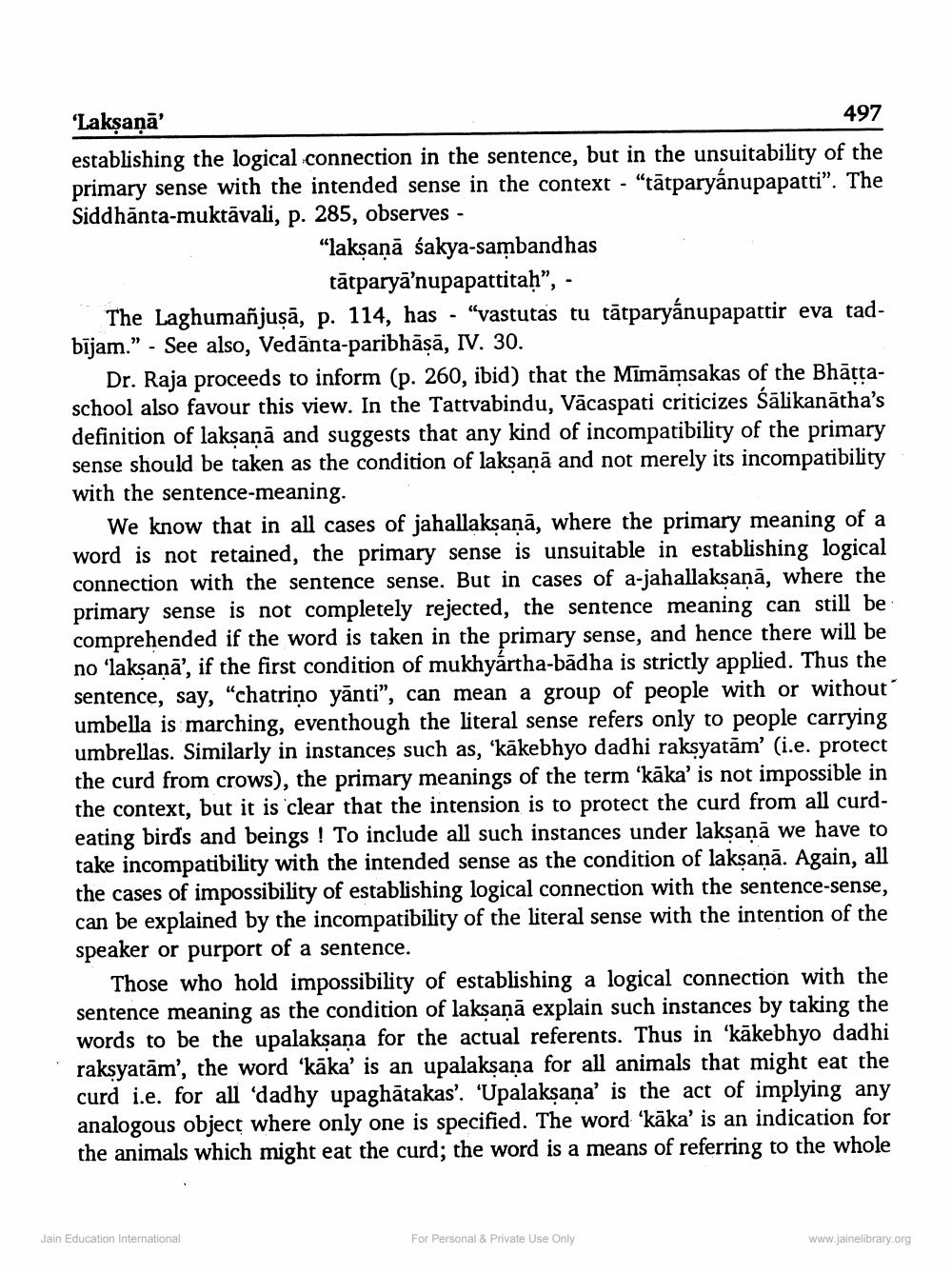________________
'Lakṣaṇā'
497
establishing the logical connection in the sentence, but in the unsuitability of the primary sense with the intended sense in the context - "tātparyánupapatti”. The Siddhanta-muktāvali, p. 285, observes -
"lakṣaṇā śakya-sambandhas
tātparya'nupapattitaḥ", -
The Laghumañjuṣā, p. 114, has "vastutas tu tatparyánupapattir eva tadbījam." - See also, Vedanta-paribhāṣā, IV. 30.
-
Dr. Raja proceeds to inform (p. 260, ibid) that the Mimāmsakas of the Bhattaschool also favour this view. In the Tattvabindu, Vacaspati criticizes Śālikanātha's definition of lakṣaṇā and suggests that any kind of incompatibility of the primary sense should be taken as the condition of lakṣaṇā and not merely its incompatibility with the sentence-meaning.
We know that in all cases of jahallakṣaṇā, where the primary meaning of a word is not retained, the primary sense is unsuitable in establishing logical connection with the sentence sense. But in cases of a-jahallakṣaṇā, where the primary sense is not completely rejected, the sentence meaning can still be comprehended if the word is taken in the primary sense, and hence there will be no 'lakṣaṇā', if the first condition of mukhyártha-badha is strictly applied. Thus the sentence, say, "chatrino yānti", can mean a group of people with or without umbella is marching, eventhough the literal sense refers only to people carrying umbrellas. Similarly in instances such as, 'kakebhyo dadhi rakṣyatām' (i.e. protect the curd from crows), the primary meanings of the term 'kāka' is not impossible in the context, but it is clear that the intension is to protect the curd from all curdeating bird's and beings! To include all such instances under lakṣaṇā we have to take incompatibility with the intended sense as the condition of lakṣaṇā. Again, all the cases of impossibility of establishing logical connection with the sentence-sense, can be explained by the incompatibility of the literal sense with the intention of the speaker or purport of a sentence.
Those who hold impossibility of establishing a logical connection with the sentence meaning as the condition of lakṣaṇā explain such instances by taking the words to be the upalakṣaṇa for the actual referents. Thus in 'kakebhyo dadhi rakṣyatām', the word 'kaka' is an upalakṣaṇa for all animals that might eat the curd i.e. for all 'dadhy upaghatakas'. 'Upalakṣaṇa' is the act of implying any analogous object where only one is specified. The word 'käka' is an indication for the animals which might eat the curd; the word is a means of referring to the whole
Jain Education International
For Personal & Private Use Only
www.jainelibrary.org




